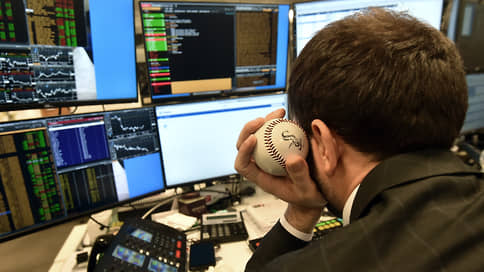Stock leaf fall – Finance – Kommersant
[ad_1]

Last month turned out to be a failure for the collective investment market. According to InvestFunds, almost all large retail funds turned out to be unprofitable for their shareholders. The outsiders were the funds of commodity issuers, which are suffering due to lower commodity prices and plans to increase the tax burden on companies. Profit brought only money market funds. In the absence of an escalation in the geopolitical situation, equity funds can quickly regain lost ground, managers say.
Raw material losses
The beginning of autumn turned out to be a failure for almost all investments in the collective investment market. According to Kommersant’s estimate, based on Investfunds data, in September, out of 113 large retail funds (OPIFs and BPIFs with assets over 500 million rubles), only three funds brought income to shareholders. At the same time, losses on 85 funds exceeded 10%, and the worst 18 depreciated the investments of shareholders by 20–28%. This year, investors suffered big losses, which reached 30-41%, only in February. However, at that time there were more than two dozen funds on the market, the shares of which grew by 10-18%. These were mainly mutual funds with foreign assets, which benefited from a sharp rise in the dollar.
The worst dynamics last month was demonstrated by sectoral funds investing in companies in the oil and gas and metallurgy sectors. The value of the units of such funds decreased by 20–28% over the month. Several factors put pressure on commodity assets at once: aggressive statements from the Fed, which increase the risks of a recession in the world’s largest economy; continuing lockdowns in China, which do not give hope for a quick recovery in energy demand in Asia. Against this background, the price of Brent oil fell by more than 10% over the month. “If we are talking about the funds of Russian commodity companies, then additional pressure on them was exerted by the news about a significant increase in the tax burden on all players in the sector, announced in mid-September,” says Sofia Kirsanova, portfolio manager at Pervaya Management Company.
Due to the fact that commodity companies occupy a high share of the Russian market, the depreciation of their shares led to a strong drawdown of the entire market. Over the month, the Moscow Exchange Index lost more than 18%, ending the reporting period below the level of 2 thousand points, rolling back to August 2017. As a result, mutual funds oriented to the broad stock market lost 17-19% over the month. The internal reasons for dumping risky securities were the announcement of partial mobilization in the country and the accession of new territories to Russia. These events are perceived by many investors as an increase in geopolitical tensions and the likely imposition of new sanctions, said Maria Trofimova, an analyst at Trinfico Management Company.
Bets didn’t come out
However, September turned out to be a failure for many world markets as well. Leading US indices fell by 9-10% over the month, European indices lost 5-7%. “The increase in key rates by the Fed and the ECB, the lockdown in China, inflationary pressure on the economies of various countries have become the reasons for the sale of risky assets. In addition to this, the problem of the bond market in the UK and the deterioration of the financial condition of one of the largest investment banks, Credit Suisse, appeared,” notes Maria Trofimova. As a result, fund units oriented to foreign assets lost 6-20% in value.
Strongly sank on the basis of the past month and more conservative bond funds. According to InvestFunds, such mutual funds showed a decrease in the value of a share by 1-6%.
In September, the RUCBITR index of corporate bonds of the Moscow Exchange fell by 2.7%, government bonds RGBITR – by 6%. The fall in the debt market began after the meeting of the Central Bank. “Despite the reduction of the key rate and the inflation forecast, the tough rhetoric of the regulator has alerted investors. The situation worsened significantly against the backdrop of geopolitical news, fears about the prospects for the economy and sanctions risks,” notes Evgeny Zhornist, portfolio manager at Alfa Capital.
Profit brought only funds inflationary bonds and money market. Shares of such funds added in price within 0.6%. This category of funds is considered the most reliable on the market, as they earn on short-term transactions, such as reverse repo, in which the management company provides money to another market participant secured by securities, most often OFZ or clearing participation certificates. “Such funds earn less, but every day and without the risk of a price decrease,” says Mr. Zhornist.
Risk is a delicate matter
In the coming months, according to portfolio managers, the situation on the market will continue to depend on the development of the geopolitical situation. In the absence of its further escalation, the Russian stock market has every chance to overcome the September losses. In this case, according to Sofia Kirsanova, the most attractive and at the same time protective sectors are the consumer sector, telecommunications, IT, and the power industry. “While such sectors as real estate, the oil and gas industry, ferrous metallurgy, seem to us much less interesting,” says Ms. Kirsanova.
[ad_2]
Source link





